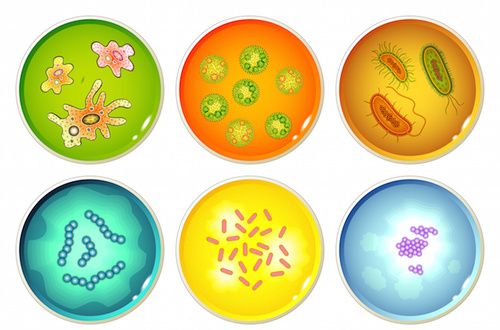Microbiological therapy, description and use
Microbiological therapy uses microbes for healing purposes against intestinal problems, metabolic dysfunctions and allergies. Let’s find out better.
> What is microbiological therapy
> How does it work?
> What ailments does microbiological therapy cure?
> Who is microbiological therapy designed for?
> The law in Italy and abroad
> Associations and reference bodies

What is microbiological therapy?
Microbiological therapy is a type of alternative therapy that uses microbes for healing purposes. Louis Pasteur , French chemist, biologist and microbiologist, has studied and disseminated this type of therapy since the 19th century and it can be said that, thanks to his discoveries and research activity, he is universally considered the founder of modern microbiology. The word microbiology comes from the Greek mīkros , “small”; bios , “life” Logia , “study”: is a branch of biology that studies the structure and functions of microorganisms.In addition to bad microbes, which can cause fatal diseases, there are also good ones. With this therapy, it is assumed that microbes are everywhere, even in the organism; the immune system is prepared to fight them, but it is also strengthened through them , knowing them and adapting accordingly, something that was already known for a long time in the millenary Chinese medicine .
How does it work?
Microbiological therapy generally works through microbiological remedies and principles deriving from classical microbiology and involves the administration of live and / or inactivated microbes and / or their components. The administration can take place in various ways, depending on the uses and fields of action: there are for example the autovaccines that are prepared by the bacteria of the person to be treated. We are in this case in the field of medical microbiology and virology.
The so-called probiotic remedies also aim to increase and promote the good intestinal flora. There are also food probiotics, which are foods enriched with good microbes, such as probiotic yogurts. These can also be purchased as food supplements in herbal medicine or parapharmacy. There is also environmental micrology, which deals with the action of bacteria on the environment, exploited above all in the ecological field.
What ailments does microbiological therapy cure
Microbiological therapy lends itself to the treatment of many diseases and ailments. It is effective in regulating the evacuation, as in case of diarrhea or constipation , when one is debilitated by an illness or fever, to regulate the metabolism. This therapy stimulates the entire immune system and supports the body’s natural defenses. It also works in case of allergies, mycosis, skin rashes, infections. It is being used a lot in the field of dental therapies , therefore we speak of oral microbiology.
Who is microbiological therapy intended for?
Microbiological therapy is designed for those who want to try an alternative cure, to source chronic diseases or those that can become so, such as allergies, psychosomatic disorders, eczema, rhinitis, sinusitis, ear infections, tonsillitis and angina or other chronic infections of the respiratory system, but not only. It is also useful for infections of the genital and urinary tract or intestines . It is a useful therapy for those who want to regulate the body’s pH, starting with gentle therapies, such as the use of food probiotics.
The law in Italy and abroad
In Italy microbiology remains a field of study that is still open and expanding, many studies have been carried out on the numerous types of bacteria present, even in Italy. It is a therapy widely used in countries such as Germany , intended in its specialization as a “natural medical treatment”. In any case, the application of these methodologies in the medical field requires specific training by the operators and institutes in charge.
Associations and reference bodies
In Italy there is the Italian Society of Microbiology, the Amcli, Association of Italian Cllinical Microbiologists, while in Germany there is Arbeitskreis für Mikrobiologische Therapie eV (Microbiological Therapy Research Association).






























+ There are no comments
Add yours